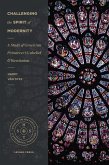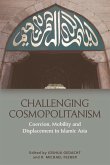Over the past few decades, a new form of Orientalism has been developing. As exemplified by Elie Kedourie and Bernard Lewis, it points to Islam as the West's archenemy. The rise of political Islam and its opposition to Western domination of the Islamic world are seen as evidence of a deep, abiding hatred of all things Western. Accordingly, the new Orientalists call for thorough reforms, among them regime changes, wars, and the imposition of 'democracy' on Islamic societies. They warn that if the West shrinks from this challenge, the Islamists will surely gain power and destroy the West. The essays in this book 'written after 9-11' dispute the new Orientalist presumption of an unchanging Islam, opposed to "Western" values and incapable of adapting to the modern world. The not-so-hidden objective of the new Orientalism is to promote acceptance of the US and Israel's imperialist push into the Islamic world as both a security imperative and a civilizing mission. Alam argues that the new Orientalist's claim of a categorical split between Islam and the West is based on a biased, inaccurate interpretation of history. While recognizing the political and economic failings of the Islamic world, Alam shows that they are legacies of two centuries of Western imperialism and are shared by all regions at the periphery of the prevailing global capitalism. If the Islamic world lags behind China and India, it is because of two factors that have given a new edge to Western involvement in West Asia and North Africa: oil and Zionism. In Alam's view, Israel is a powerful destabilizing force in the region, whose survival depends upon turning the Western-Islamic conflict into a hot war. Not surprisingly, many of the new Orientalists are strong partisans of Israel.
Dieser Download kann aus rechtlichen Gründen nur mit Rechnungsadresse in A, B, BG, CY, CZ, D, DK, EW, E, FIN, F, GR, HR, H, IRL, I, LT, L, LR, M, NL, PL, P, R, S, SLO, SK ausgeliefert werden.









